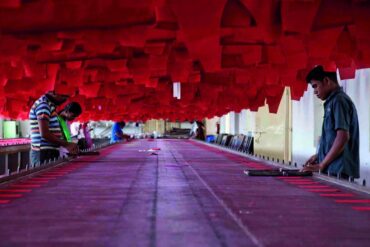In a growing economy like ours, start-ups have become common. According to a report in 2015, Start-up Village based in Kochi creates one entrepreneur a day. Since its inception in 2012, it has produced 533 start-ups till 2014. Of these, 293 have been student start-ups from which, 116 are active, 149 inactive, and 28 fizzled out. So, why is there is high rate of failures among start-ups? Here’s taking a closer look.
Lack of Drive
“The drive to take up a challenge and turn it into a success is very low,” says Manoj Chandran, founding partner of Start-up League, an organisation that aims in building responsible entrepreneurs. “Nearly 90 per cent of start-ups originate looking at the success of others and not due to their own passion,” he says.
According to him, most of them haven’t ever seen the inside of a company nor do they know how a company functions. More often they realise that the project might be in danger only when there aren’t enough funds to draw their salary, he adds.
“Then the tendency is to leave the product halfway and turn into a part-time organisation or a service organisation. Product A isn’t improvised and turned into A.1, instead it is abandoned and turned into product B or shut down completely,” explains Chandran.
There are quantitative initiatives, not qualitative. New entrepreneurs don’t sit on an idea, but rush into it. There is no passion to run a company. They tend to think that just the title of CEO is everything. Lack of exposure too plays a role in one’s success rate, according to Chandran. An important reason why start-ups seem to be failing is lack of market research to understand the potential customer and going down when one realises that there aren’t any buyers.
Not a Failure
However, young entrepreneur Meher Moosa doesn’t share these views.
“I don’t view a product failure as a complete failure. Pivoting the company to work towards another project or coming up with a new product isn’t a failure either. Start-ups are knowledge-driven and as long as that is kept up, it can’t be really considered as a failure,” he says.
Moosa, who launched a product called Secure Browser under Anamega with a few of his batch mates in 2013, is now working with a non-profit start up incubator called Tinker Hub Foundation that helps tech talents develop tech products that help start-ups sustain. Tinker Hub helps talents to brainstorm, find the right mentors and get the right scholarships and internships relevant to their field.
Sandeep C.S., founder and CEO of HomeInner, a planning and decorating firm says, “I did not see civil engineering as a job, but as a passion. And I think that’s what makes the difference. I incurred some losses in the first year. But I wasn’t disheartened. I believed sincerely in my dream and worked towards making it,” he says.
Lack of Mentors
According to Abdul Lateef, another Kochi-based new entrepreneur, it is hard to find the right kind of mentors in Kerala. Finding the right kind of support and guidance is very important to take your project to the next level and sustain it.
“I have knocked on several doors to make my project a success before taking things into my own hands. Nearly 65-75 per cent of start-ups are copies of successful models elsewhere. Uniqueness is rare,” he says.
This according to him is another important reason why start-ups could be shutting down in one or two years.
The State government in 2014 implemented the Technology Start-up Policy through its nodal agency Kerala Start-up Mission. The policy covers major points of start-ups like capacity development, infrastructure development, funding, and industry association. Technical know-how, idea validation, market viability, and innovation are other areas the policy will focus on. With such government policies that encourage student entrepreneurship and supportive organisations like Start-up League and Tinker Hub Foundation, could we see more success stories?







